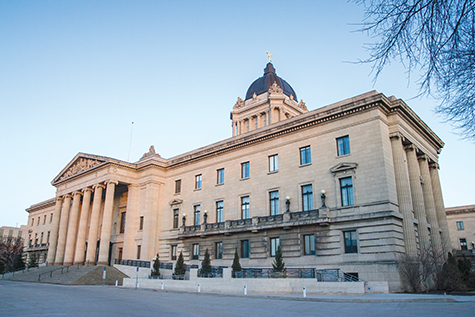
The national media are positively giddy with their new-found (rediscovered?) access to our parliamentary representatives, and most notably the Prime Minister himself. Not only is the press once again abuzz with activity, but all manner of photo ops and interviews are available to them from Trudeau’s airport greeting of refugees to his thoughts on Star Wars: The Force Awakens. The optimists are calling this the dawn of a golden age while the pessimists simply write it off as politicking. But if the first week of parliament is any indication, we are moving toward a new culture in the great halls. True to promise, we see changes in the operation of the House and the inclusion of all parties in its shape and design.
Despite any motivations and agendas that may exist, it is becoming clear that when the honeymoon ends, our parliamentarians will be working in a more civil and inclusive environment. Perhaps young Mr. Trudeau did retain something from his father. Despite the senior Trudeau’s shortcomings (east-west relations, the National Energy Policy, etc.), he had a deep passion for the value of parliament and the parliamentary process, partially due to the era in which he served, which was in many ways a golden age itself. Writing often for the political journal Cité Libre, he spoke firmly and often bluntly about the importance of all players, including opposition, in producing decisions that were truly in the best interest of all Canadians.
What will be most interesting, and most beneficial to us as citizens, is watching the impact that this groundswell has on our other political horizons. Federal policy, direction, and culture has always had an impact on the provinces, and by proxy on our local councils. Do not misunderstand, this groundswell is not partisan; it may have all three of our provincial parties questioning their stance and learning new dance steps.
Our current ruling NDP has the distinction of being criticized as often for their non-cooperative approach and failure to communicate as they are for their policies. Take the PST increase; while none of us enjoy paying the extra one percent, its need is largely understood. What is beyond comprehension is how little consultation took place and how poorly its intent was communicated. Unfortunately, this has become the modus operandi of our provincial government, leading to suspicions of hidden agendas and incompetence—or worse, indifference.
The official opposition may fare no better in their quest to conform to our new political reality. While the nomination and election of progressive candidates put the PCs in a position to win the election, they must break the stigma of arrogance and callous policy that has always plagued the right wing. PC leadership must release its central grip and let some of its best and brightest shine. The lesson from the feds may be that the people want progressive politics and MLAs who can represent their constituents fully, not just within the realm of party rhetoric.
Our provincial Liberal leader is looking to rebuild and capitalize on the Red Wave that seems to be sweeping the nation. Unfortunately, while she seems to have grasped the slant of public opinion, her strategy of focusing on opportunistic and ill-thought policy is doomed to fail. Perhaps these are merely the failings of the small staff provided to a single member party, but policies such as a blanket two-year rent freeze could not be proposed by anyone who had done the research. Yes, the idea of cheaper booze from my local privateer may garner some votes, but the majority of voters will seek a little more substance.
It is time for the boys and girls of Broadway to head back to school. We, the citizens, are tired of games. We want effective government. We want transparency, not in the form of reports and press releases, but true honesty from our leaders. It’s a simple lesson, but they must be ready for the final test. It’s worth 100 percent of their grade and is scheduled for April 19.



















